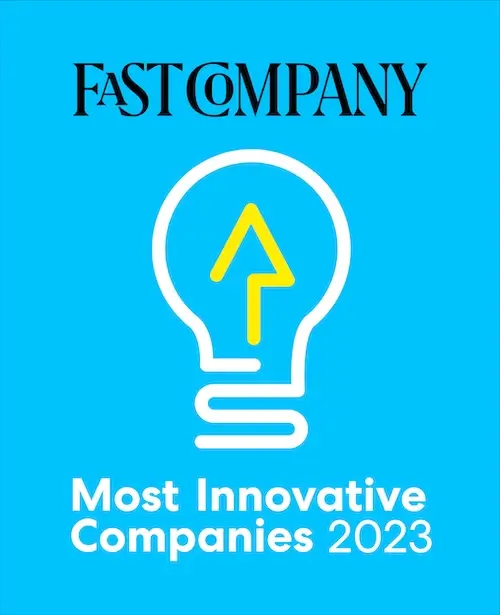Digital transformation is often hyper-focused on the technology adopted. In the case of contract management, technology has evolved for the past twenty years, bringing new efficiencies and cost-savings to organizations. But how do these technological advances make an impact? How do they affect the people in these organizations?
ContractPodAi co-founder and CEO, Sarvarth Misra, shares how people have always made a greater impact on the technology developed for contract management, than the other way around. In this Q&A, learn how contract management technology can be traced back to the financial crisis of 2008, the changing nature of the contract itself, and the advancement of AI use to name a few.
HOW DID THE CHANGING FUNCTION OF LEGAL WITHIN ORGANIZATIONS IMPACT THE PROCESS OF CONTRACT MANAGEMENT?
When the financial crisis of 2008 occurred CFOs around the world and across industries pushed forward and said, ‘we can no longer afford to pay for inefficient processes and people’.
Within organizations, legal departments were forced to examine work that was high volume but low complexity. A primary example of this was contract management. This mandate gave rise to a wave of technological solutions designed to offload low-value work being done by well-trained people.
The importance of legal documents to the company was never in question. How could it be when research showed that the average company has approximately 20,000 to 40,000 contracts? However, the process by which they were being done was challenged. Furthermore, a research report by Forrester states the average amount of time to create and approve a contract is 3.4 weeks. Highly trained legal professionals were spending hours on manual and low-value work.
With the advent of early contract management technology, the legal department began to take on more of a management role. They started looking at resourcing and really examining their processes and the products that could help them be more efficient in terms of service.
HOW ARE CONTRACTS THEMSELVES EVOLVING?
When the legal departments started examining these processes, there was a realization that there is an enormous opportunity to create technological solutions to help. These professionals left their organizations and building upon their own subject matter expertise, started their own businesses to create solutions for lawyers designed by lawyers.
One of the biggest changes to contracts themselves during this evolution of contract management technology was the move from the traditional two-dimensional role of contracts from buy-side and sell-side to a more agnostic take. The role of contract management technology was to enable efficiency. Therefore it should be able to do buy-side, sell-side, and non-buy-side, sell-side contracts as well. Think of non-disclosure agreements, employment agreements, HR agreements et cetera. And, this is where the input of legal professionals continues to be essential. We need the input of legal teams to help drive the offerings we have.
Within organizations, new challenges continue to present themselves to legal departments. For example, there is the issue of legacy contracts. These need to be digitalized. If not, they are not able to track key obligations. Nor do they know when the contracts are up for renewal or what price escalation looks like. And making sure they know what are the key drivers, are there KPIs in the contract being managed and if there is governance around it becomes really difficult.
As we learn more about these challenges to legal teams, we are able to create technical offerings that target the pain points.
HOW WILL THE POSITION OF GENERAL COUNSEL EVOLVE OVER THE NEXT COUPLE OF YEARS?
The General Counsel’s job is evolving and it will continue to evolve in the coming years.
They are no longer a cost center, but instead, have to be a value-driven asset to the company. There will be a greater focus on management for them, than for pure-play lawyers. Yes, they are still responsible for providing good legal advice to their respective companies, but they are also business leaders. Part of their job now is the business and data-driven decisions on funding, financing, making use of technology, transformation projects, etc. This means that not only will they have to be good lawyers and understand the law, but they also need to be good business managers and understand business as well.
A couple of driving factors have come out for General Counsels. One, they are under constant pressure to do more for less. Then they need to build processes and bring consistency to those processes. Especially when it comes to contract management. And overarching these is the fact that it all needs to be of the highest quality.
AI IS THE HOT NEW TOPIC IN THE LEGAL INDUSTRY – IS THIS SOMETHING ONLY THE BIG ELITE COMPANIES CAN PARTAKE IN?
Right now in the market, there is a lot of misunderstanding around what AI means, and what it will do for businesses. AI is here now and it is here to stay. And believe me, it’s only going to get better. But what is still the most important is what it can do for you today. And how it can help with your current business challenges. But no, AI and contract management technology, in general, is no longer only for companies that can afford very expensive solutions. It is now something that comes out of the box. On day one – already you can have a live system with which you can show ROI to your board.
Of course, we still have a long way to go, and I think there are always areas that can be improved on. But, it should no longer be that you can only make use of this technology if you are a Fortune 500 company.
ARE LEGAL PROFESSIONALS NECESSARY FOR THE CONTINUED ADVANCEMENT OF CONTRACT MANAGEMENT TECHNOLOGY, INCLUDING AI-POWERED SOLUTIONS?
We need contract management technology that is scalable. AI technology that manages corporate agreements, is still relatively young. The technology relies on the input of legal professionals to grow their intelligence.
Today, an AI solution can take first-level legal review out of the equation. From a contract management perspective, it is able to read documents, analyze language, and report back with abstracted key information. This can happen right out of the box!
What this means is that fact-processing is completely part of the equation. Rather than having someone manually read the contract, extract the data, fill in the sheet, and track the contract and obligations, there is a solution that does that for you. We will see more AI bots that will ask a set of questions in relation to the contract and will be able to input that data.
Like in any industry where digital transformation is happening, the rise of this new technology is creating a host of new opportunities. Of course, along with improving challenges and removing barriers, digitization is also eliminating certain jobs and tasks. But I believe for every one job that this technology will take away, it will create five more opportunities.
Contract management technology continues to evolve along with the professionals who use it, the documents it processes, and the people who are creating it. People continue to have much more of an impact on technology than technology has on them. With more challenges being presented to legal departments and organizations, the need for greater efficiencies will continue.










